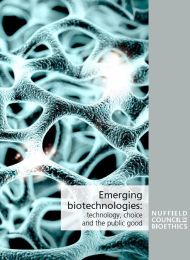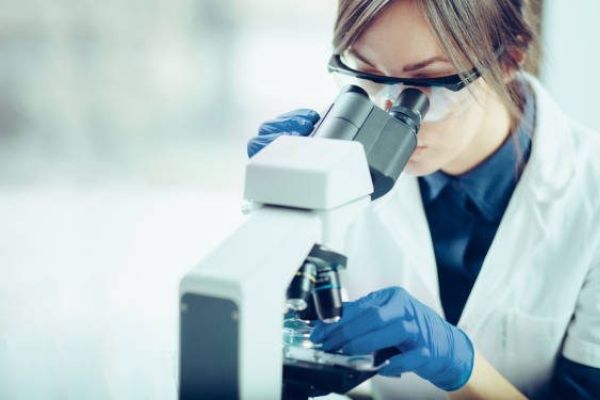Emerging biotechnologies: technology, choice and the public good
Report
Published 13/12/2012

Public consultation
The consultation on emerging biotechnologies closed on 15 June 2011.
Evidence review
In order to inform its deliberations, the Working Party commissioned two additional reports. These covered: the sources and allocation of funding for research and development of biotechnologies; and, the analytical significance of the concept and property of ‘emergence’ in the patent system.
Review 1: Emerging biotechnologies: can we find out who funds R&D and what they support?
Purpose: to assist the Working Party in understanding:
- existing patterns of national and international research funding (or resource allocation) in the field of biotechnology; and
- the extent to which these data can be reasonably acquired and the limitations of the relevant methodologies.
The review was carried out by Dr Michael Hopkins of SPRU (Science and Technology Policy Research), University of Sussex. The review did not seek to provide a comprehensive analysis of existing sources providing data on biomedical funding but, rather, presented illustrations of the forms in which data are available.
Review 2: The analytical significance of emergence in the patent system
Purpose:
- to assist the Working Party in understanding the intellectual property system as it applies to emerging biotechnologies and, in particular:
- challenges for the IP system posed by emerging biotechnologies and how the IP system has responded/might respond to these; and
- challenges posed by the IP system for emerging biotechnologies and how the practitioners have responded/might respond to these
- 2) To provide data and concrete examples to support this analysis
- 3) To assist the Working Party to draw conclusions about how decisions about IP conditions that influence (limit, facilitate, control, direct, etc.) the emergence of biotechnologies should be framed and advice that should be taken into consideration.
The review was carried out by Dr Siva Thambisetty, London School of Economics and Political Science and was informed by work on an EPSRC Discipline Hopping Award on synthetic biology. The review was largely based on secondary research.
Fact-finding meetings
The Working Party held a series of ‘fact-finding meetings’ as part of its work. Experts were invited to give presentations and discuss their views and experiences on:
- Research and development
- The role of public engagement
- Intellectual property, innovation and markets
- Policy, regulation and governance
Further information about the Working Party’s evidence and opinion gathering activities can be found in Appendix 1 and 2 of the full report.

Share